 After three episodes of Koi wa Ameagari no You ni I think I’ve come to a conclusion about at least this much – whatever you think about the concept of a love story between a 45 year-old man and a 17 year-old girl, there’s a right way and a wrong way to do it, and this series is doing it the right way. So far at least, and it is important to note that since it hasn’t gotten to the really potentially squicky parts yet. But the margin for error with this premise is small, and if Koi wa Ameagari wasn’t so well-written and directed, I think we’d already be seeing serious warning signs.
After three episodes of Koi wa Ameagari no You ni I think I’ve come to a conclusion about at least this much – whatever you think about the concept of a love story between a 45 year-old man and a 17 year-old girl, there’s a right way and a wrong way to do it, and this series is doing it the right way. So far at least, and it is important to note that since it hasn’t gotten to the really potentially squicky parts yet. But the margin for error with this premise is small, and if Koi wa Ameagari wasn’t so well-written and directed, I think we’d already be seeing serious warning signs.
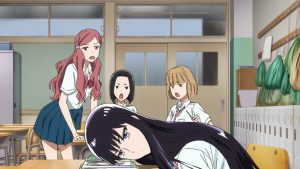 Really, this week’s episode is a tale of two halves, with each of the A and B-parts giving us the perspective of this developing relationship through the eyes of one of the participants. Both are well-done, but it’s the second that’s really crucial – because for the first time in the anime, we really see things through Kondou-san’s eyes. But it’s (again) Akira’s view we see first, and there are some interesting insights to be gleaned from the A-part as well. Not least among them is that she almost immediately returns (in the rain, befitting the title) to confess to Kondou again – which tells us something about her, and thankfully scoots the story past some potential cliche potholes that were looming in front of it.
Really, this week’s episode is a tale of two halves, with each of the A and B-parts giving us the perspective of this developing relationship through the eyes of one of the participants. Both are well-done, but it’s the second that’s really crucial – because for the first time in the anime, we really see things through Kondou-san’s eyes. But it’s (again) Akira’s view we see first, and there are some interesting insights to be gleaned from the A-part as well. Not least among them is that she almost immediately returns (in the rain, befitting the title) to confess to Kondou again – which tells us something about her, and thankfully scoots the story past some potential cliche potholes that were looming in front of it.
 This much we know about Akira, she’s a very direct person. To the extent that she says things that hurt people without thinking about it, only after the fact regretting that she’s done so and trying to walk them back. But she’s experienced a lot of pain both physically and emotionally, and it’s a little unsettling to see how closely she ties her feelings for Kondou Masami into her feelings about her injury and the loss of the sport she loved – the thing, probably, that made her feel special. That’s not to say her feelings for him couldn’t be genuine, but does she have the requisite template of experiences to really understand what she’s feeling, and why?
This much we know about Akira, she’s a very direct person. To the extent that she says things that hurt people without thinking about it, only after the fact regretting that she’s done so and trying to walk them back. But she’s experienced a lot of pain both physically and emotionally, and it’s a little unsettling to see how closely she ties her feelings for Kondou Masami into her feelings about her injury and the loss of the sport she loved – the thing, probably, that made her feel special. That’s not to say her feelings for him couldn’t be genuine, but does she have the requisite template of experiences to really understand what she’s feeling, and why?
 It’s in the B-part, as we get into Kondou’s frame of mind, that things get really interesting. Whether he knew what Akira was really saying to him the first time or not, after the second confession he can have no doubts about what she was trying to tell him. And he asks exactly the question anyone in his position should be asking – why would a 17 year-old like someone like me in that way? Contrary to what some silly comments about this series might say 45 certainly isn’t old, but it’s not an age of someone that a 17 year-old would normally fall in love with. Kondou tries to reconcile what Akira has told him and can come up with no ready explanation – even trying to convince himself he’s been punked by the young’uns in an elaborate joke (but I don’t think he actually believes that).
It’s in the B-part, as we get into Kondou’s frame of mind, that things get really interesting. Whether he knew what Akira was really saying to him the first time or not, after the second confession he can have no doubts about what she was trying to tell him. And he asks exactly the question anyone in his position should be asking – why would a 17 year-old like someone like me in that way? Contrary to what some silly comments about this series might say 45 certainly isn’t old, but it’s not an age of someone that a 17 year-old would normally fall in love with. Kondou tries to reconcile what Akira has told him and can come up with no ready explanation – even trying to convince himself he’s been punked by the young’uns in an elaborate joke (but I don’t think he actually believes that).
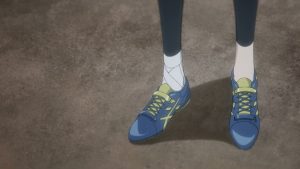 If such a thing were ever to happen (as it occasionally does) I think Kondou handles a 17 year-old falling for him about as well as anyone could. Once it’s clear to him that this is no joke, no misunderstanding, he decides to confront Akira about it directly rather than let it hang in the air between them. He stays externally calm and tries to remain logical, and certainly logic is on his side – but a teenager’s heart is not always going to be governed by logic.
If such a thing were ever to happen (as it occasionally does) I think Kondou handles a 17 year-old falling for him about as well as anyone could. Once it’s clear to him that this is no joke, no misunderstanding, he decides to confront Akira about it directly rather than let it hang in the air between them. He stays externally calm and tries to remain logical, and certainly logic is on his side – but a teenager’s heart is not always going to be governed by logic.
 Kondou is, I think, quite poignant here – this experience both reminds him of his own youth (the last time a young girl expressed an interest in him, unsurprisingly) and causes him to declare himself a “middle-aged boy”, as Akira’s confession makes him feel as if he really hasn’t grown at all. It’s not enough that he’s 45 and old enough to be Akira’s father – in his own mind, Kondou is a man without hopes or dreams and totally unfit to be the object of affection for someone whose entire life is an open book of possibilities. He can’t see that in Akira’s eyes he’s a kind and decent soul with a sense of duty and responsibility – for his son, and for his career.
Kondou is, I think, quite poignant here – this experience both reminds him of his own youth (the last time a young girl expressed an interest in him, unsurprisingly) and causes him to declare himself a “middle-aged boy”, as Akira’s confession makes him feel as if he really hasn’t grown at all. It’s not enough that he’s 45 and old enough to be Akira’s father – in his own mind, Kondou is a man without hopes or dreams and totally unfit to be the object of affection for someone whose entire life is an open book of possibilities. He can’t see that in Akira’s eyes he’s a kind and decent soul with a sense of duty and responsibility – for his son, and for his career.
 This is all very, very difficult – that much is obvious. And if the age difference weren’t enough of a hurdle, there’s the matter of Kondou-san being Akira’s boss – which in itself makes a romantic relationship between them a terrible idea. But one can sense Kondou beginning to see the appeal of it, and how could he not? A divorced father who probably feels unwanted and stagnated – how could he not be flattered and a little thrilled to have a beautiful girl like Akira express her attraction for him? There’s still much dangerous ground here, both for Kondou-san and for Koi wa Ameagari, but now that we’re starting to get his perspective on what’s happening here it feels as if the chances are improving that both he and it can steer clear of the worst of it.
This is all very, very difficult – that much is obvious. And if the age difference weren’t enough of a hurdle, there’s the matter of Kondou-san being Akira’s boss – which in itself makes a romantic relationship between them a terrible idea. But one can sense Kondou beginning to see the appeal of it, and how could he not? A divorced father who probably feels unwanted and stagnated – how could he not be flattered and a little thrilled to have a beautiful girl like Akira express her attraction for him? There’s still much dangerous ground here, both for Kondou-san and for Koi wa Ameagari, but now that we’re starting to get his perspective on what’s happening here it feels as if the chances are improving that both he and it can steer clear of the worst of it.


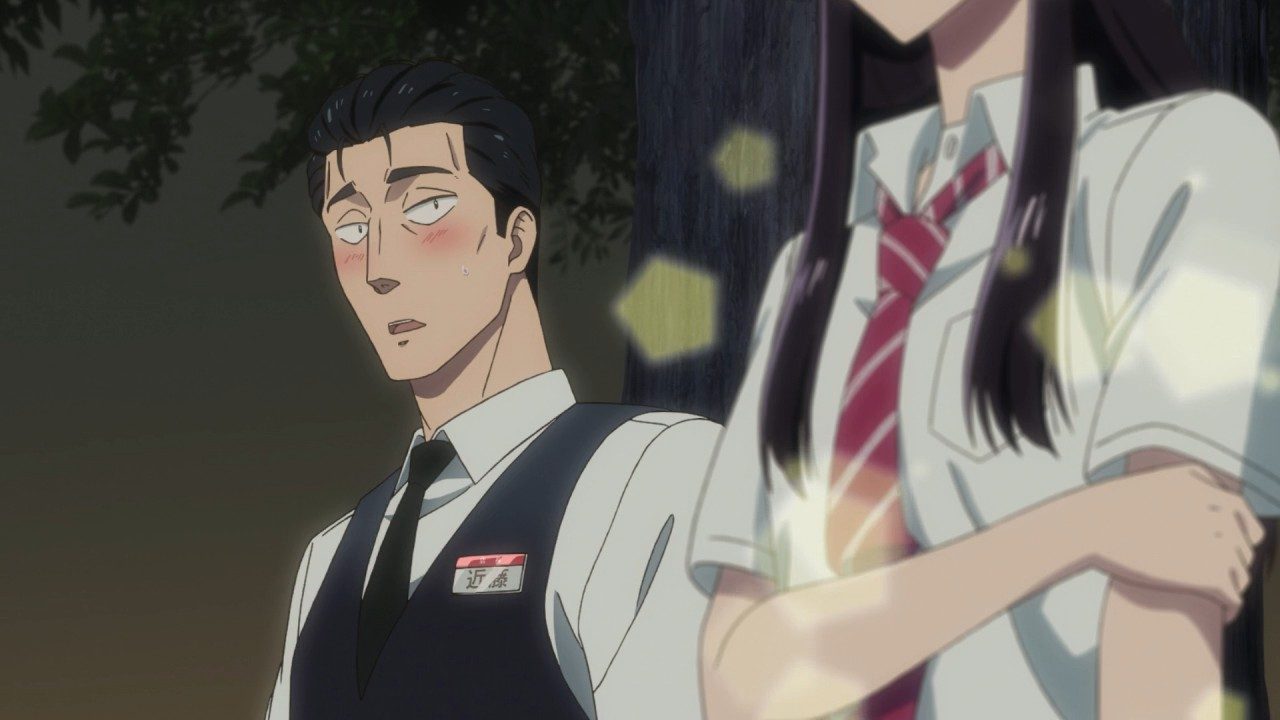

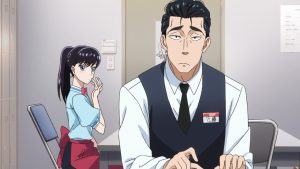

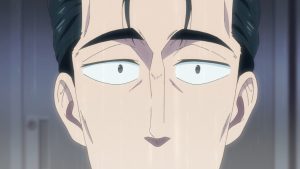




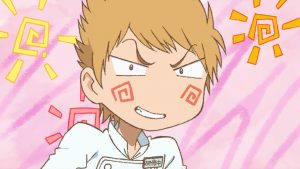
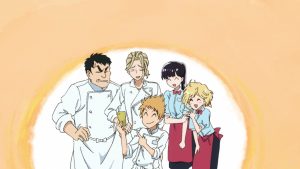



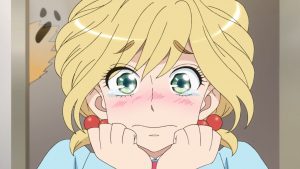



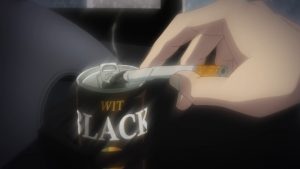
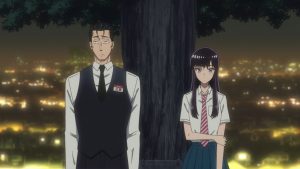
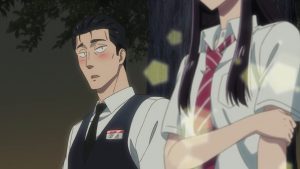

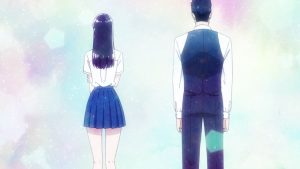

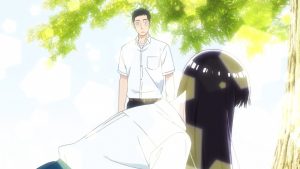






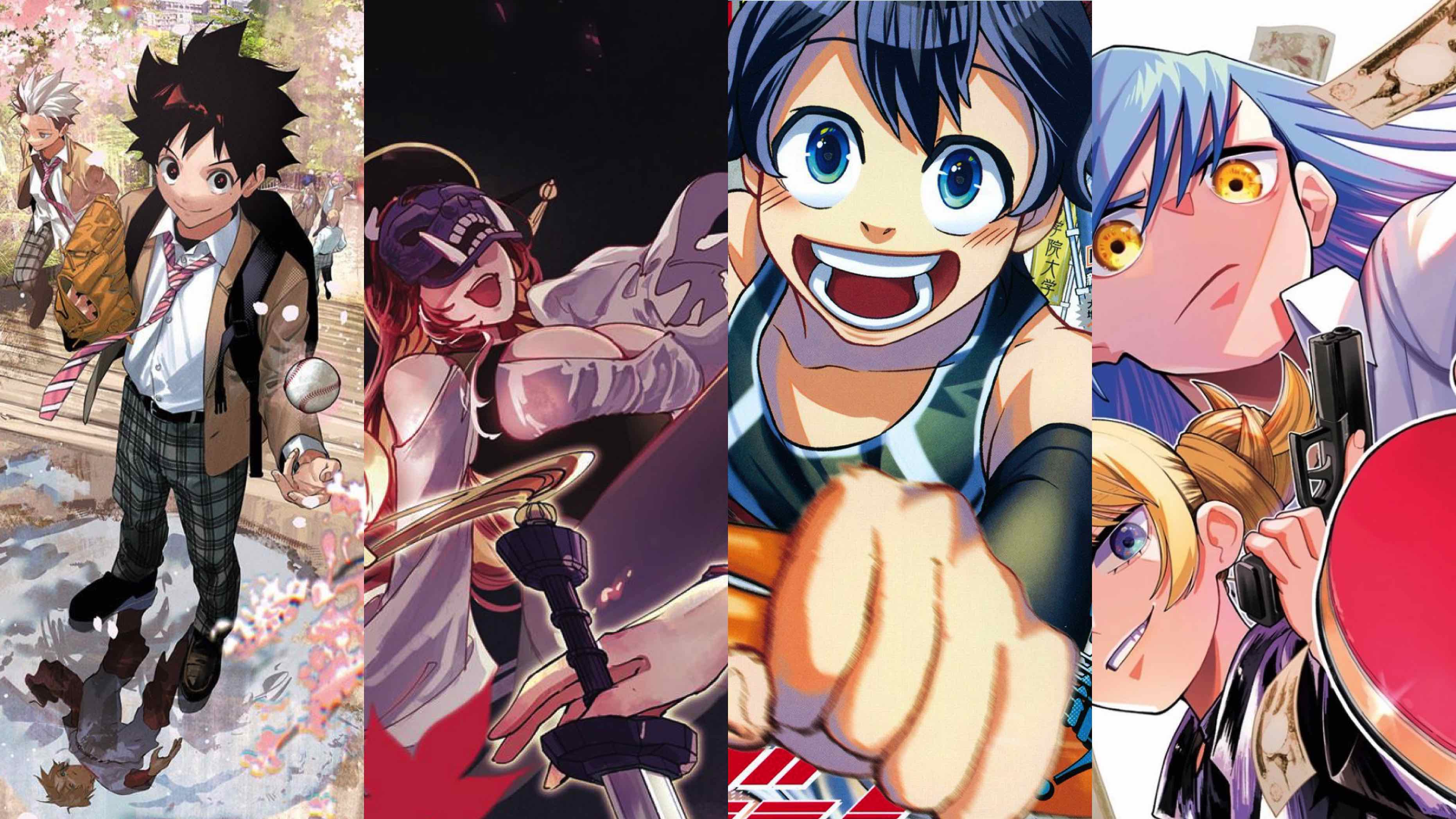
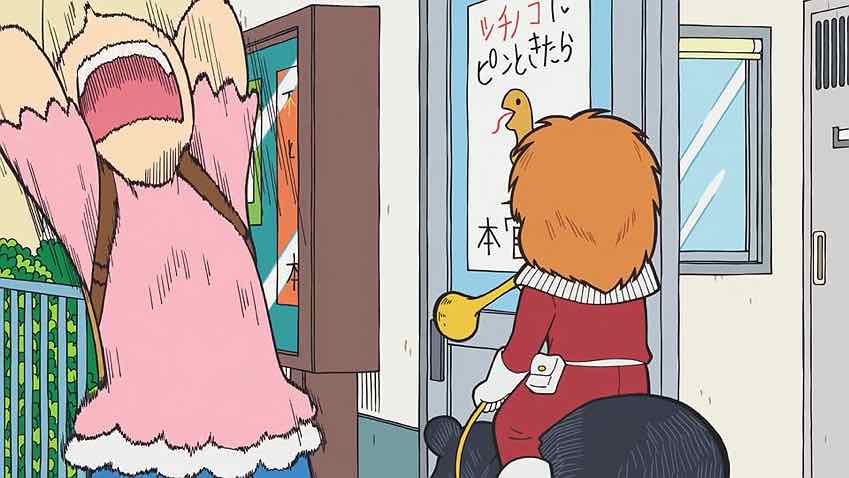
Haraga Heranai
January 26, 2018 at 12:39 amI don’t think Kondou handled the situation well. Finally confronting Akira instead of pretending to ignore the issue was a good first step. Then he could have categorically denied her (“I’m sorry, I’m your boss, and I’m old enough to be your father, so it is not going to work”) as a responsible adult would, but instead he basically asked Akira to persuade him so that he could feel better about actually giving it a try. The show made perfectly clear where he is coming from, but I hope it won’t portray Kondou as a responsible man in the future, as he clearly is not. Seriously entertaining the idea of going out with Akira may be a part of the problem of why he is so unhappy with his life.
And by the way, the age gap is troublesome to say the least, but isn’t him being her boss even more problematic?
Panino Manino
January 26, 2018 at 6:38 amThis can’t be 100% “realistic”, after all if it was the romance wouldn’t happen.
But fear not, there’s more in this than just the “romance”. Notice how you can already see signs of how one makes the other’s life feel relevant and meaningful, which is something that both can achieve alone.
Guardian Enzo
January 26, 2018 at 7:32 amWell, it’s certainly troublesome – that’s why I noted it in the piece. “More” troublesome I guess is up to personal opinion – certainly both are an issue. Most companies I’ve worked as a manager for ban such relationships outright, and I think that’s a good policy.
As for how Kondou handled it, I view it as him trying to let Akira down easily. Maybe he’s erring in favor of being too kind, but that’s forgivable to me.
justfun
January 26, 2018 at 1:20 pmThis is exactly like a responsible person with even a minimal amount of experience in romantic relationships should behave. Watching the manager being flattered by a 17-year old girl was cringeworthy, but it seems the story wants to follow exactly this problematic issue. It’s a thin line, indeed, and I’m on the verge of dropping the show since the first episode. While we got an insight into Akira’s feelings this time, the character of the manager is still pretty shallow but is starting to get explored. Hopefully.
Stöt
January 27, 2018 at 3:04 pmlol, it’s a part time job that she can just straight up leave if she wants to, she lives in a rich neighbourhood and doesn’t need the wages to support herself. How the hell is that _such_ a problematic situation? And even if she was a wage slave, it doesn’t immediately end up in abuse territory just because of that. Every fucking thing is problematic these days, give me a break.
As much as you want to deny it, even adult people are complicated and not 100% responsible even when they’re 40 something. He clearly didn’t ask Akira to persuade him and getting to know Akira might as well be a solution to his unhappiness. The age gap is huge, and will cause problems, but I was as much of an adult at 17 as I am 10 years later – just a little less care-free.
Guardian Enzo
January 27, 2018 at 3:20 pmBut she hasn’t quit, has she? As long as he’s her boss, it’s a minefield of epic proportions even if they were the same age.
A lot of anime fans are blase about any ethical concerns when it comes to sex, I know. 45 and 17, “wincest”, lolicon – it’s all good, as long as it delivers the goods trope-wise. Fortunately so far at least this show has chosen to tackle a highly dubious situation with a modicum of seriousness.